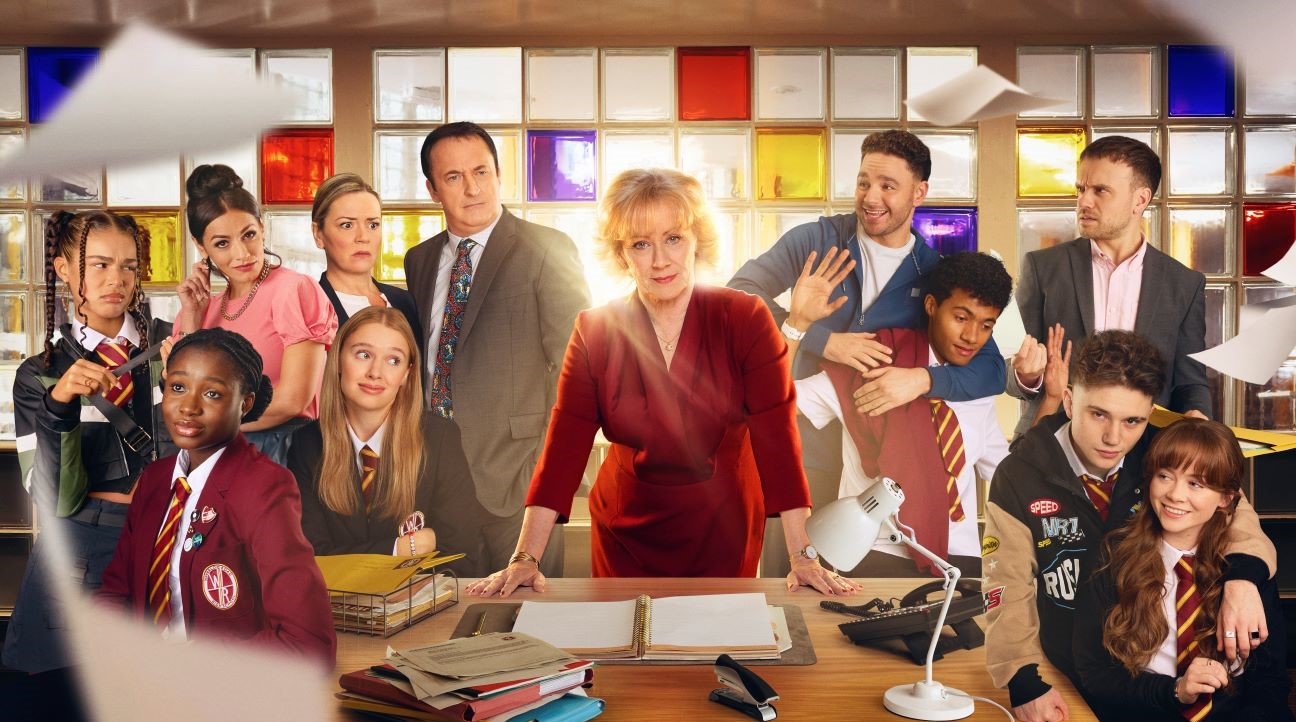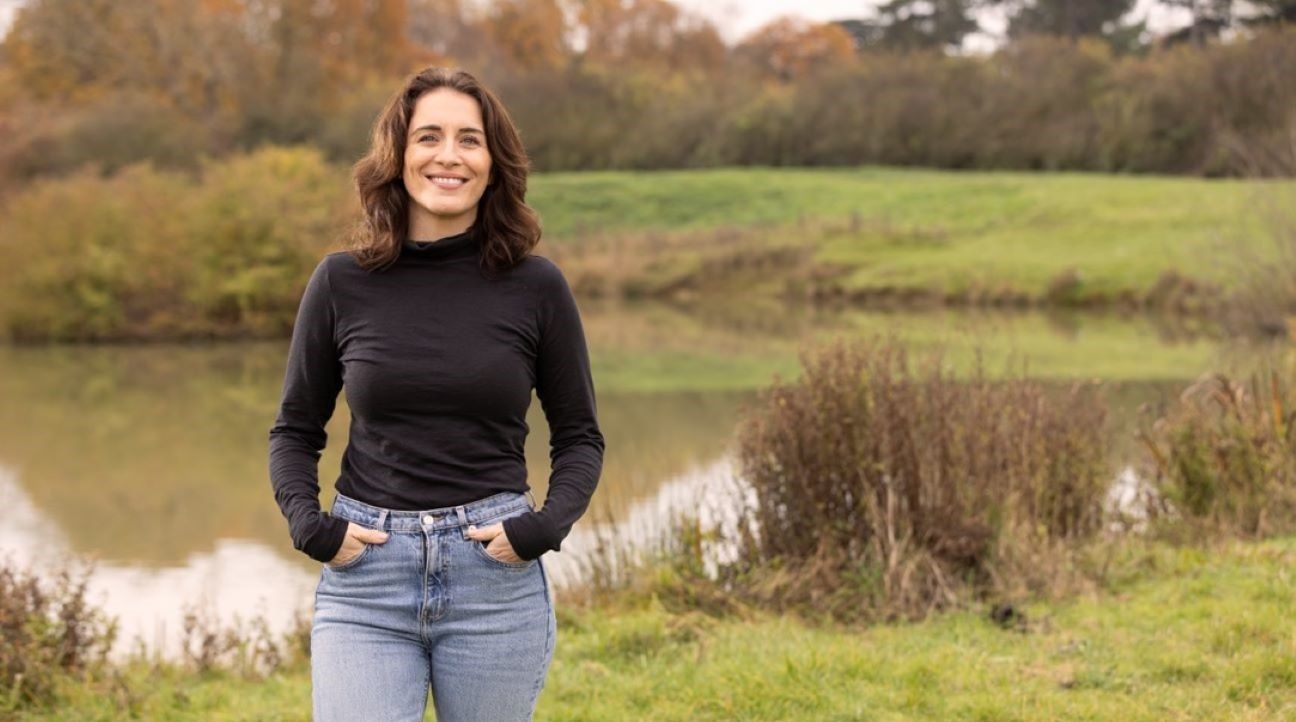- To mark the 80th anniversary of D-Day, D-Day: The Unheard Tapes features extraordinary audio testimony from survivors of the Normandy landings, lip synced by actors
- Privileged access to NASA’s mission to return astronauts to the moon for the first time in over 50 years in Artemis: A Horizon Special
Jack Bootle, Head of Commissioning, Specialist Factual, says: “The BBC is committed to bringing the very best science and history stories to British viewers. Human is a stunning new take on the deep history of humanity, driven by new DNA evidence; Artemis: A Horizon Special provides privileged access to NASA’s new lunar mission; and D-Day: The Unheard Tapes gives new insight into the Normandy Landings by bringing to life the voices of witnesses who died many years ago. These are ambitious programmes which will take viewers on strange and eye-opening journeys – into the depths of the past and beyond the edge of the world.”
D-Day: The Unheard Tapes
Coinciding with the 80th anniversary of D-Day in 2024, D-Day: The Unheard Tapes (w/t) relives one of the most extraordinary days in the history of modern warfare through the incredible preserved audiotapes of those who experienced the invasion first-hand.
From the team at Wall to Wall behind BAFTA-nominated documentary AIDS: The Unheard Tapes, the series is a co-production for BBC Two and iPlayer and The History Channel made in partnership with The Open University and Imperial War Museums.
On the 6th June 1944, around 156,000 Allied troops landed in Normandy in what would be the largest seaborne invasion in history, a critical event that would alter the outcome of the Second World War. At its epicentre were hundreds of thousands of young men and women, many of whose stories have remained untold until now.
The three-part documentary draws on a trove of original recorded interviews from British, American and German soldiers, and French witnesses, to tell the fateful story of D-Day as it was lived on the ground. The extraordinary spoken testimonies have been sourced from museums, university archives and private collections and include discoveries of material never previously digitised or heard publicly. They recall moments of bravery and fear, strategy, chaos, and split-second decision making, their memories taking us through the invasion as it unfolded.
Adopting an innovative new approach, the rich variety of first-person audio interviews will be given new life by a cast of young actors lip-syncing in documentary settings, combined with archival footage and immersive documentary-style recreation to tell the story of D-Day as it’s never been told before.
Simon Young, Head of History, BBC Factual Commissioning, says: “This is a genuinely fresh and innovative way in to one of the most iconic periods in modern history. D-Day didn’t happen in black and white, nor was it a one-sided tale of Allied genius. By bringing the events of that day to life with real words recast as interview testimony, this series brings us closer to those men and women who lived through it. The series will be part of a wider raft of BBC programming to commemorate the final months of World War Two, allowing modern viewers a new opportunity to connect with our past.”
Morgana Pugh, Executive Producer, Wall to Wall, says: “Many months of dedicated research have enabled us to discover a series of powerful interviews recorded with those who fought on D-Day, sourced from around the world. In previously unheard and deeply personal stories, the real voices of those who took part in the Normandy landings will lead us through their own unique experiences; from mission reveal to the landings and beyond. Actors lip syncing veterans’ real voices will bring us closer to our contributors, as they tell the story of their D-Day in their own words, in all its raw and revealing detail.”
David Fenton, Assistant Director, Imperial War Museums, says: “Imperial War Museums are thrilled to be working with Wall to Wall on this exciting project. We are the custodians of a vast collection of recorded interviews and testimony so it is fantastic to be able to bring some of these fascinating stories to life in such a personal and innovative way.”
Dr Frances Houghton, Lecturer in History at The Open University and Academic Consultant on the series, says: “D-Day: The Unheard Tapes brings the experiences, feelings, and memories of ordinary people who were involved in, or impacted by, the Allied invasion to life in new and evocative ways. It draws extensively on oral testimonies that were recorded with military veterans and local civilians, granting the viewer an unusually intimate insight into what D-Day meant to those who survived. Overall, this series poignantly highlights the historical value of capturing veterans’ voices so that future generations might better understand what war is like ‘at the sharp end’. In so doing, it invites us all to reflect on how we remember and tell stories of conflict.”
D-Day: The Unheard Tapes (w/t) will air in 2024 alongside a broader programme of content and live event coverage to commemorate the anniversary of D-Day and the final months of World War Two.
D-Day: The Unheard Tapes (w/t) a 3x60 for BBC Two and iPlayer was commissioned by Jack Bootle, Head of Commissioning, Specialist Factual, and the BBC Commissioning Editor is Simon Young, Head of History. It is a co-production between the BBC and The HISTORY® Channel. Executive Producers for The HISTORY® Channel are Eli Lehrer and Jennifer Wagman.
The series is being made in partnership with The Open University and Imperial War Museums.
It is produced by Wall to Wall where the Executive Producer is Morgana Pugh, the Series Producer is Zoe Jewell, and the Series Director is Mark Radice.
Artemis: A Horizon Special
This Horizon special has privileged behind-the-scenes access as NASA sends astronauts back to the Moon for the first time in over 50 years - among them, the first woman and person of colour to walk on the lunar surface. The Apollo missions were discontinued in 1972 for being too expensive and dangerous (some of the first astronauts reportedly believed they had a one in three chance of dying); since then, no human has travelled that far from Earth. Now, Artemis - the successor of Apollo - is NASA's grand plan to establish a permanent lunar base before heading eventually for Mars. The next step is the Artemis II mission, which will fly four astronauts to the far side of the Moon and back, as a proof-of-concept before attempting a lunar landing.
However, the mission is already under pressure - the launch was recently delayed by ten months (to September 2025), underlining just how complex it is to send humans beyond the limits of our own atmosphere – and return them safely. Thousands of individual components have to work perfectly; every risk has to be minimised - whether from equipment failure, micrometeoroid collisions, or radiation exposure. And this time, NASA is collaborating with international and commercial partners, many of whom are newcomers in the human exploration of deep space. An observational documentary shot over 18 months, this film will follow the astronauts, engineers, and back-room crews in the build-up and execution of a historic mission.
Artemis: A Horizon Special 1x60 for BBC Two and iPlayer was commissioned by Jack Bootle, Head of Commissioning, Specialist Factual. It is being produced by Wall to Wall where the executive producer is Jeremy Dear and Tim Lambert is the co-executive producer and director. It is a co-commission with NOVA and is produced in partnership with the Open University. The BBC commissioning editor is Tom Coveney, BBC Head of Science. NOVA Executive Producers are Julia Cort and Chris Schmidt. NOVA is a production of GBH.
The film will air on NOVA on PBS in the US and will be available for streaming at pbs.org/nova and via the PBS App (premiere date to be announced).



